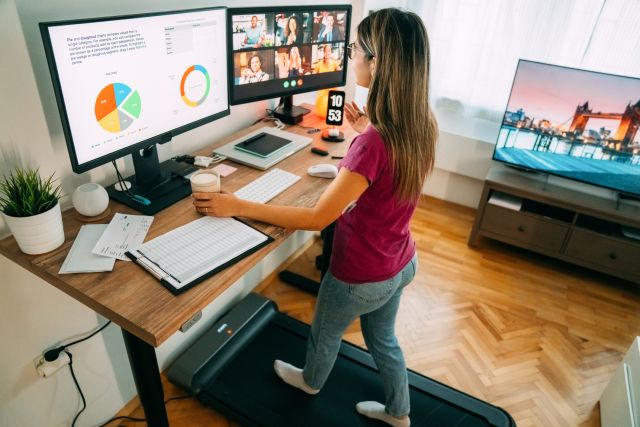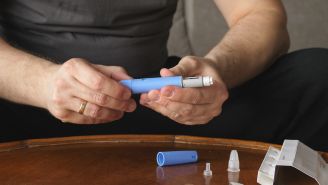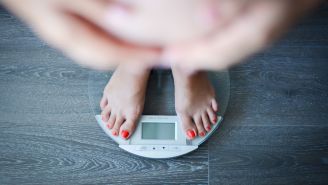Your body might be able to break down fat better if you do this one simple thing: stand more.
Research from the University of Missouri suggests that when people sit too much, enzymes that help break down fat are practically turned off. Bad news not just for your waist but also for your heart and artery health.
The solution? Fidget, pace, get up, get down. Do whatever you have to do to move those legs of yours—and do it often.
Couch-potato science
Reducing time spent moving around may have a big impact on lipoprotein lipase (LPL), an enzyme that helps break down fat in the body, according to research conducted in animals. The enzyme's activity was slashed 94 percent by less than one day of inactivity in one study.
While animal studies don’t necessarily translate into humans, the researchers speculated that this dramatic drop in LPL could mean more fat retention for the body.
But frequently engaging your large muscles could be a good way to counter it. That means more time standing, walking, pacing, and puttering and less time lounging. And that applies even if you already have an exercise routine.
The daily lowdown
Unfortunately, daily low-intensity activity—everyday stuff like walking to the bus stop, pinning the laundry on the line, or pushing the lawn mower—is going out of style thanks to desk jobs, working from home, and 500-channel cable TV packages. But your body needs not only a formal workout routine but a high amount of everyday movement, too. Try these tips for making your days more active:
- Be a multitasker. Make chore time your exercise time.
- Bounce that knee. Fidgeting can help you burn calories.
- Try shorter workouts if you don't have time for longer ones.
- Turn your desk into a treadmill.







